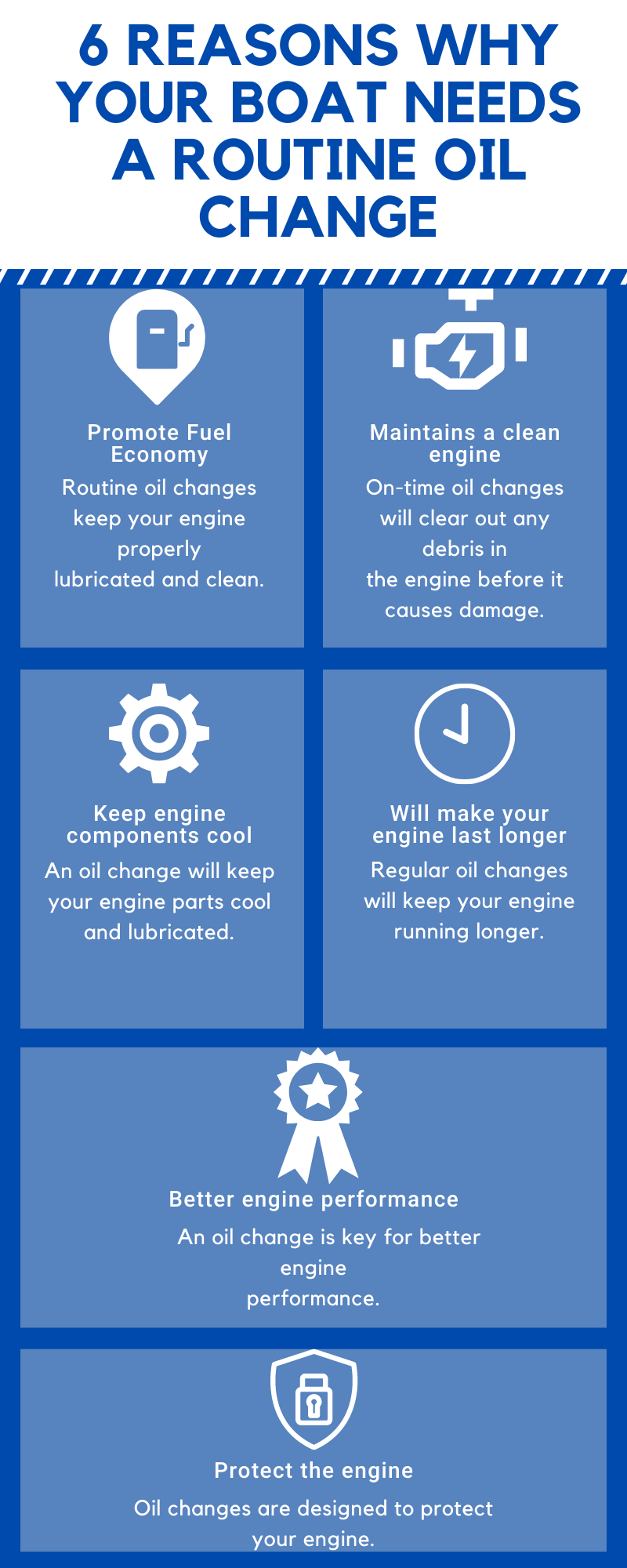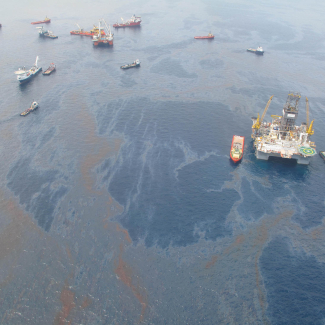A boat typically needs about 1 gallon of oil for every 50-100 horsepower. Proper maintenance is essential to ensure optimal performance and longevity of the boat’s engine.
When determining the amount of oil needed for a boat, factors such as the engine’s horsepower, type of oil required, and frequency of use must be taken into consideration. By regularly checking and maintaining the oil levels in the boat’s engine, you can prevent damage and ensure smooth sailing on the water.
In this blog, we will delve deeper into the importance of using the correct amount of oil for your boat and provide valuable tips for maintaining your boat’s engine efficiently.
.jpg)
Credit: www.theyachtmarket.com
Introduction To Boat Fueling
Boat fueling is an essential part of owning a boat, and one of the most important factors is determining how much oil your boat needs. To calculate this, you must consider the size and type of your boat’s engine, as well as the manufacturer’s recommendations.
It’s important to follow these guidelines to ensure optimal performance and longevity of your boat’s engine.
When it comes to boating, one of the most important considerations is fueling your boat properly. Understanding how much oil your boat needs is crucial for a smooth and efficient sailing experience. In this article, we will delve into the key considerations and the importance of efficiency when it comes to boat fueling.
Key Considerations
When determining how much oil your boat needs, there are several key factors to take into account:
- The size and type of your boat
- The engine specifications
- The distance you plan to travel
- Weather conditions
By considering these factors, you can ensure that you have enough fuel to reach your destination safely and without any disruptions.
Importance Of Efficiency
Efficiency plays a vital role when it comes to boat fueling. Not only does it save you money in the long run, but it also helps reduce your environmental impact. Here are some reasons why efficiency matters:
- Saves money: By optimizing your boat’s fuel consumption, you can minimize costs associated with refueling.
- Extends range: With efficient fuel usage, you can maximize your boat’s range, allowing you to explore farther destinations.
- Reduces emissions: Efficient fueling practices help minimize the release of harmful emissions into the environment, preserving our waterways for future generations.
- Enhances performance: When your boat is fueled efficiently, it operates at its peak performance, ensuring a smooth and enjoyable boating experience.
Therefore, it is crucial to prioritize efficiency when determining how much oil your boat needs.
Types Of Boats And Their Fuel Needs
Small Boats Vs. Large Boats
Small boats typically require less fuel than large boats due to their smaller size and lower engine power. They are often used for recreational activities such as fishing, water sports, and short coastal trips. Large boats, on the other hand, have greater fuel demands as they are designed for long-distance travel and may have multiple engines to power their size and weight.
Sailboats, Motorboats, And Yachts
Sailboats rely on wind power and require minimal fuel, primarily for auxiliary engines and electricity generation. Motorboats, including speedboats and fishing boats, need more fuel to power their engines for propulsion. Yachts, especially luxury yachts, have significant fuel needs due to their size, amenities, and long-range cruising capabilities.
Calculating Your Boat’s Fuel Consumption
Understanding Gallons Per Hour (gph)
Understanding the concept of gallons per hour (GPH) is essential for accurately determining your boat’s fuel consumption. GPH refers to the amount of fuel, measured in gallons, that your boat engine burns in one hour of operation.
Tools And Formulas For Calculation
There are several tools and formulas available to help you calculate your boat’s fuel consumption. One commonly used method is the fuel flow meter, which measures the actual fuel flow rate in gallons per hour. Another approach involves using the engine’s manufacturer-provided fuel consumption data, typically expressed in GPH at various RPM levels.
Factors Influencing Fuel Consumption
Boat Weight And Load
The weight and load of a boat are critical factors influencing fuel consumption. Heavier boats require more fuel to propel through the water, while overloading can also increase fuel usage.
Weather Conditions And Water Currents
Weather conditions and water currents play a significant role in fuel consumption. Strong winds and rough seas can increase fuel usage, while favorable currents can help conserve fuel.
Tips For Reducing Fuel Consumption
To reduce fuel consumption on boats, it’s crucial to know the right amount of oil needed. Follow the manufacturer’s guidelines for your specific boat engine to optimize performance and efficiency. Regularly check oil levels and change oil as recommended to maintain smooth operation and minimize fuel usage.
Regular Maintenance Tips
Regular maintenance of the boat engine keeps it running efficiently.
Check for leaks and repair them promptly.
Clean the propeller and hull to improve fuel efficiency.
Efficient Boating Practices
Plan your routes to avoid unnecessary detours.
Operate at lower speeds to save fuel.
Trim the boat properly to reduce drag and save energy.

Credit: marinedieselspecialists.com
Fuel Types And Their Impact On Efficiency
Boats require different types of fuel, and the type of fuel used can have a significant impact on the boat’s efficiency. The amount of oil a boat requires will depend on its size, engine type, and fuel efficiency, which can be affected by factors such as the type of fuel used and the quality of the engine.
Comparing Diesel, Gasoline, And Electric
When it comes to fueling a boat, there are several options to choose from, including diesel, gasoline, and electric. Each fuel type comes with its own set of pros and cons, making it important to understand the differences between them to determine the most suitable option for your boat.Pros And Cons Of Diesel Fuel
Diesel fuel is a popular option for larger boats due to its high efficiency and low fuel consumption. It is also considered more environmentally friendly compared to gasoline, as it produces fewer emissions. However, diesel engines tend to be more expensive, and their maintenance costs can be higher as well.Pros And Cons Of Gasoline Fuel
Gasoline is the most common type of fuel used in boats due to its affordability and availability. Gasoline engines are also generally cheaper compared to diesel engines. However, gasoline is less efficient than diesel, meaning you may have to refuel more frequently. It also produces more emissions, which can harm the environment.Pros And Cons Of Electric Fuel
Electric engines are becoming increasingly popular due to their environmental friendliness and quiet operation. They are also cheaper to maintain compared to gasoline and diesel engines. However, electric engines have limited range and require frequent recharging, making them less suitable for long-distance trips. They are also more expensive to purchase initially, and their performance can be affected by weather conditions. In conclusion, the choice of fuel for your boat depends on your specific needs and preferences. Diesel fuel is best for larger boats, gasoline is ideal for those on a budget, and electric fuel is perfect for eco-conscious boaters. Consider the pros and cons of each fuel type to make an informed decision.Navigating Regulations And Safety
To ensure compliance and safety, understanding the oil requirements for your boat is crucial. Factors like engine size and usage dictate how much oil your boat needs. Regularly checking and following manufacturer recommendations will help maintain optimal performance and prevent potential issues.
Fuel Storage And Handling
In boat operations, store and handle fuel carefully. Be aware of regulations on fuel storage.Environmental Considerations
Prevent spills and leaks into water sources. Dispose of used oil and fuel properly. Understanding boat oil requirements is crucial. Ensure compliance with fuel storage regulations. Always prioritize safety in handling boat fuel.
Credit: www.noaa.gov
Case Studies: Fuel Efficiency Success Stories
Discover real-life case studies showcasing fuel efficiency success stories in the marine industry, focusing on the critical question: “How much oil does a boat need? ” Explore proven strategies and innovative technologies that have helped boats achieve remarkable fuel savings, offering valuable insights for boat owners and operators seeking to optimize their fuel consumption.
Boats have always been known for consuming a considerable amount of fuel. However, with the advancements in technology and innovations in boat design, there have been some remarkable success stories in fuel efficiency. In this section, we will take a closer look at some real-life examples of boats that have achieved impressive fuel efficiency and the innovations that made it possible.Innovations In Boat Design
Boat designers are continuously exploring new ways to make boats more fuel-efficient. One major innovation is the use of lightweight materials, such as carbon fiber, to reduce the weight of the boat. This not only increases speed but also reduces fuel consumption. Another innovation is the use of hybrid engines that combine electric and diesel power to reduce fuel consumption and emissions. Additionally, the development of more efficient hull designs that reduce drag has also contributed to fuel efficiency.Real-life Examples Of Efficient Fueling
There are several real-life examples of boats that have achieved impressive fuel efficiency. One such example is the Hysucat, a catamaran that uses a patented hydrofoil technology to reduce drag and increase fuel efficiency. The Hysucat has been shown to consume up to 40% less fuel than conventional boats of similar size and speed. Another example is the Solarwave, a solar-powered catamaran that is completely emissions-free and can travel up to 100 nautical miles on a single charge. In conclusion, fuel efficiency in boats is no longer just a dream but a reality. Innovations in boat design and real-life examples such as the Hysucat and Solarwave prove that it is possible to achieve impressive fuel efficiency in boats. As technology continues to advance, we can expect even more impressive fuel efficiency success stories in the future.Conclusion
Determining the right amount of oil for your boat is crucial for optimal performance and longevity. Regular maintenance and monitoring are essential to ensure that you have enough oil in your boat’s engine. By following the manufacturer’s recommendations and considering factors such as engine type, usage, and oil quality, you can keep your boat running smoothly and avoid costly repairs.
Remember to consult with professionals and refer to the owner’s manual for specific guidelines tailored to your boat.


